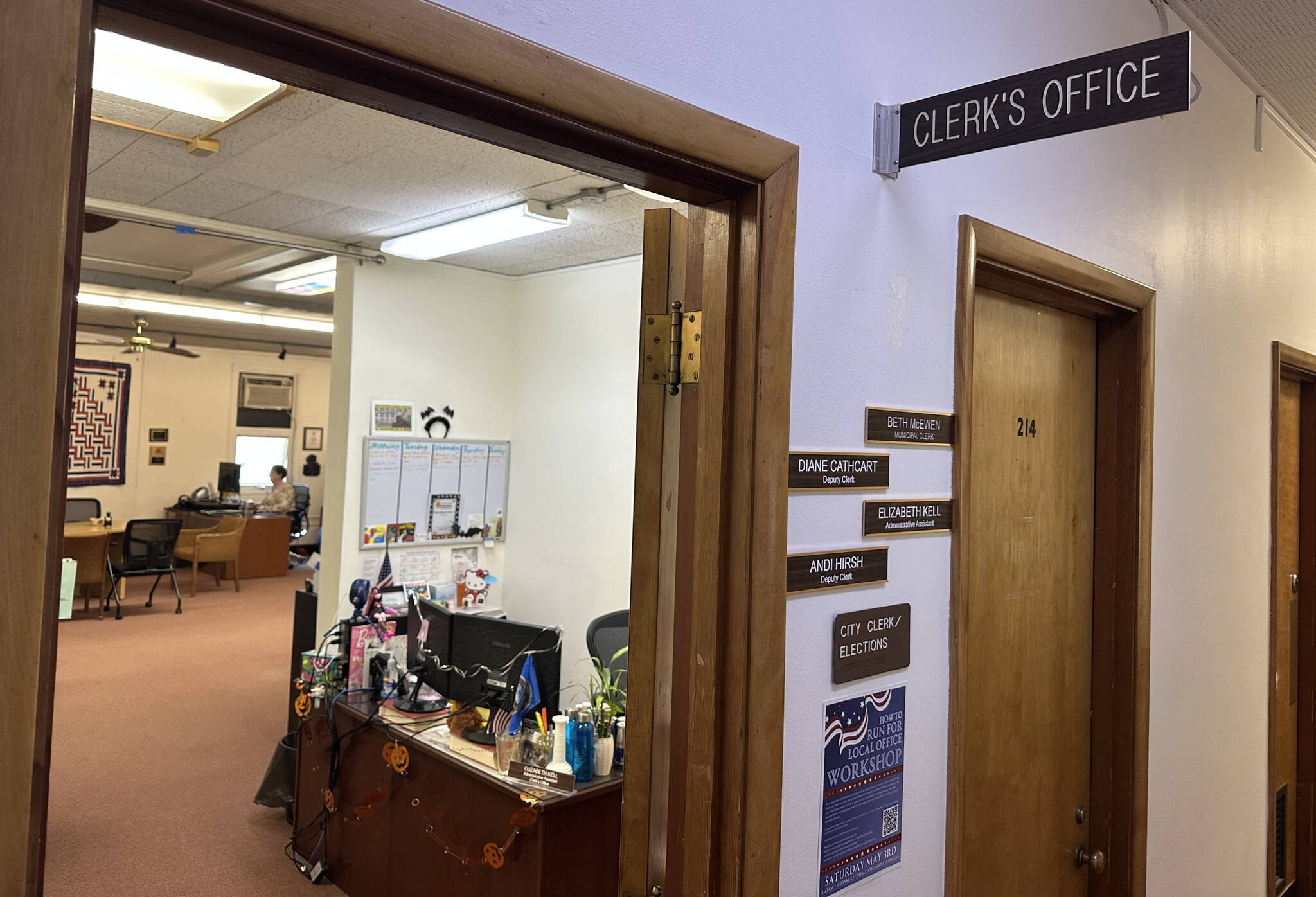Three proposed ballot measures seeking to ask Juneau voters this fall about capping property taxes at nine mills, eliminating sales taxes on food and utilities, and conducting local elections in person by default rather than by mail were filed with the municipal clerk’s office on Thursday.
All three proposals were filed by a group calling itself the Affordable Juneau Coalition, said Joe Geldhof, a local attorney and former Juneau Assembly candidate whose name appears on all three measures.
“This is the culmination of a lot of people who have been waiting for people to address affordability in Juneau, and they realize they’re going to wait forever for…the people down (at City Hall) to do anything about it,” he said. “So they’re sort of using brute force.”
Among the other names appearing on some or all of the petitions are Angela Rodell, Mac Meiners, David Hanna, Frank Bergstrom and Molly Duvall.
The deadline to file initiative petitions for the fall municipal election was Thursday and there are now four items being reviewed, including one filed Monday seeking to cap the number of cruise passengers allowed daily and annually in Juneau. The municipal clerk’s office has until April 28 to reject or approve the cruise petition, and until May 1 to act on the Affordable Juneau Coalition measures.
If the petitions are approved, supporters would need to get signatures from at least 2,720 registered voters — equal to at least 25% of the total cast in the most recent municipal election last October — to put the questions on the ballot.
The three proposals filed by the coalition include:
• An initiative setting a cap of nine mills, rather than the current limit of 12, not including additional property taxes “required to serve general obligation indebtedness.” The Assembly would have to get voter approval in a regular or special election to set a higher rate. The current mill rate is 10.04, of which 1.08 mills are for debt service. The proposed budget for next year raises the mill rate to 10.19.
• An initiative exempting “essential food” and residential utilities from local sales taxes, which currently total 5% (a 4% fixed tax and 1% temporary tax voters have approved every five years for decades).
• A charter amendment reversing an existing ordinance “requiring that mail-in voting take priority over in-person voting.” Instead, if approved, the amendment would require all local elections to be poll-based “unless otherwise directed by the Assembly.”
Geldhof said there is a common thread among the three proposals.
“You might say, wait, how does the election fit into Affordable Juneau?” he said. “Clearly the millage cap addresses affordability, and the sales tax elimination on food and stuff does it. It turns out one of the big things that really hacks people off about the election where you went to the mail (is) it’s more expensive by a lot, including the three-quarters of a million dollars to buy the place to store the machines and everything. And it’s slower and it marginally increases the potential for fraud — and notice I said marginally. That’s the common denominator in all three of them.”
Eliminating sales tax on food would cost the City and Borough of Juneau roughly $6 million, according to a 2022 estimate by the city’s finance director at the time when the idea was being considered by the Juneau Assembly. An estimate of how much in utilities taxes would be lost if the measure passes was not immediately available.
Capping the mill rate at nine rather than 10.19 would cost CBJ roughly $7.7 million, based on next year’s proposed budget. However, the actual loss would be much smaller due to the exemption for debt service, which would allow a rate of 10.08 mills.
CBJ’s operating budget is roughly $195 million, not including separate budgets for the Juneau School District and Bartlett Regional Hospital. Geldhof said he believes there are ways the city can make cuts to compensate for the reductions in revenue that would occur if the mill cap or sales tax exemption measures are approved by voters.
“Starting with the city manager’s salary, whose total labor cost is making way more than the governor, there’s one to begin with,” he said. “A lot of the grants and everything else that they pass out. It’s like everybody wants to be Santa Claus down there, and they collect money and start passing it out. I understand politicians love handing out money, they love spending money. But for a town the size of Juneau, when you start really digging into the budget…we spend a fantastic amount of money. Is it sort of luxurious? Kind of, Is it wasteful? Somewhat.”
• Contact Mark Sabbatini at mark.sabbatini@juneauempire.com or (907) 957-2306.

